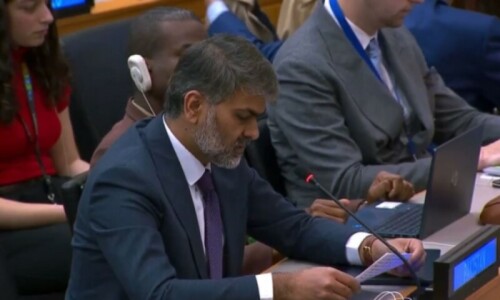THE belated attempts by the state to create a specialised, robust legal mechanism to deal with the fallout of the fight against militancy all appear to have one thing in common: they tend to infringe on fundamental rights on the assumption that the state is always right when it comes to picking up and detaining suspected militants. Now, as reported in this paper yesterday, the government is preparing to unveil a new law to deal specifically with the issue of missing persons. And once again, the old claim of the security apparatus that it needs to keep suspects in custody for longer durations without bringing charges against them appears to be winning the day. While the recommendations are not known to have been finalised yet, sources close to the process have confirmed that the draft bill will allow for official detention of even more than 90 days —justified in the name of the security agencies needing time to fully investigate a suspect and prepare a dossier of evidence that will stand up in court.
To be sure, the criminal justice system is broken and all too often, terrorists and militants walk free. That is the problem that needs to be fixed and it will take a huge effort by various arms of the state — legislative, executive, security and judicial. But everything the state does with detainees in its custody must be done within the parameters of the law and the constitutionally guaranteed rights of individuals. To insist on that is not to tie one hand of the security apparatus behind its back, but to acknowledge an eternal truth that must always be guarded against: the state can err and the state can terrorise its own people if given the freedom to do so. To allow for extended lawful detentions without any charges or trial is a power so patently open to abuse in an already broken system that it appears borderline criminal in and of itself.
Even more troublingly, and indicative of the civil-military imbalance, is the recommendation to provide blanket immunity to the security agencies accused of illegally detaining terrorism suspects. Is that the only way for the government to prise missing persons from the clutches of the security establishment, or is it just a cowardly expedient? Drafting legislation to deal with an existing problem ought never to be about creating new problems and sweeping aside crimes as an expedient. Surely, the government can do better.












































